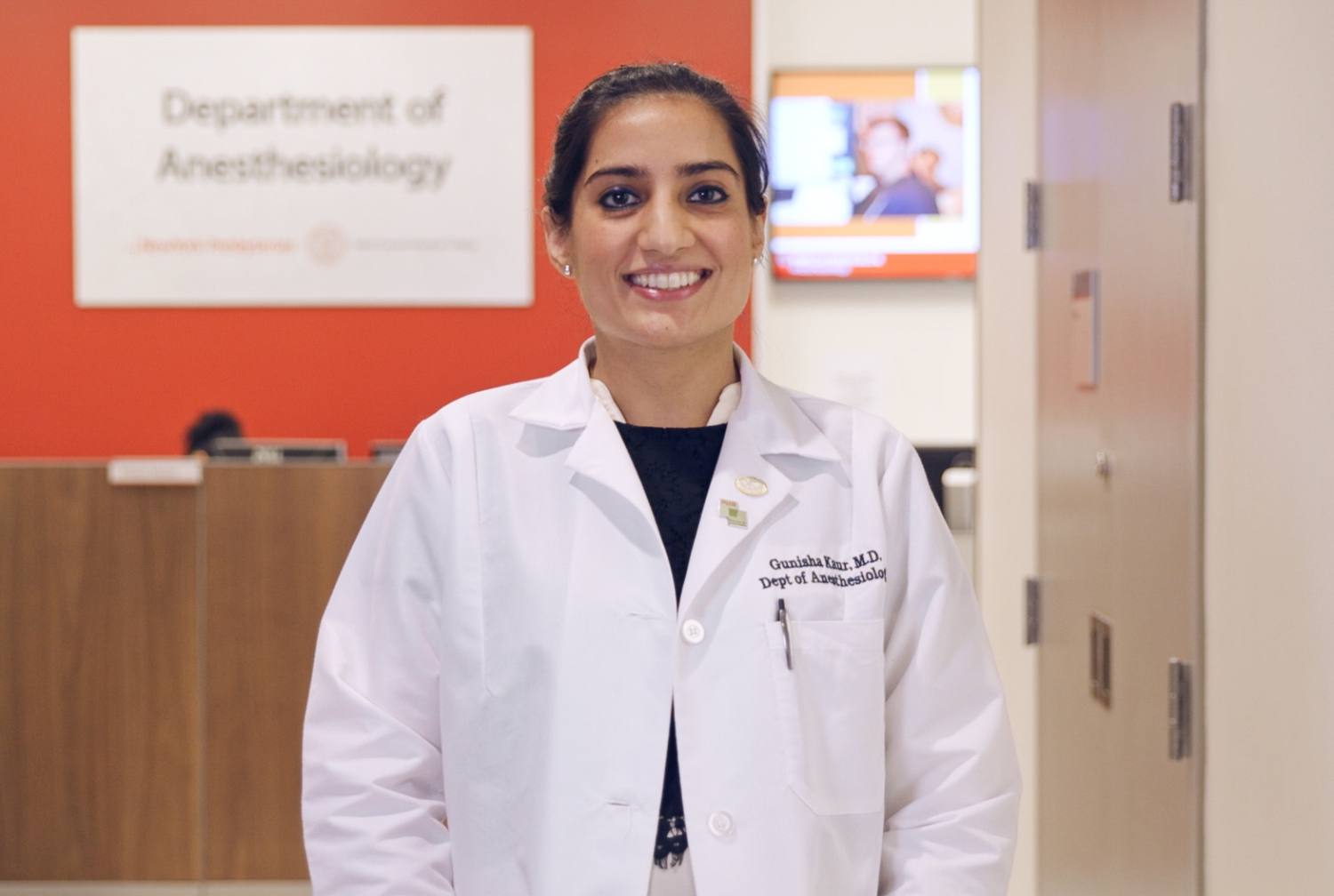Dr. Gunisha Kaur, an assistant professor of anesthesiology at Weill Cornell Medicine and medical director of the Weill Cornell Center for Human Rights, has been selected as an Emerging Leaders in Health and Medicine (ELHM) Scholar by the National Academy of Medicine.
Dr. Kaur, a respected human rights researcher, was one of 10 ELHM Scholars chosen this year. Established in 2016, the ELHM program annually selects early- and mid-career professionals with demonstrated leadership and professional achievement in biomedical science, population health, health care and related fields. While continuing to work at their primary institutions, scholars serve a three-year term, benefitting from mentorship, collaboration and innovation opportunities with their class and NAM members and leaders across various fields.
“I am genuinely surprised and incredibly honored to be selected as an ELHM Scholar,” Dr. Kaur said. “This opportunity will help raise awareness about our trailblazing clinical research into improving outcomes for displaced and vulnerable populations. At the same time, I’m looking forward to mentorship and engagement with others who have broken barriers and invented new ways to improve human health.”
Dr. Kaur, who is also founding director of the Weill Cornell Medicine Human Rights Impact Lab, noted she’s grateful to her nominator, Dr. James Eisenach, professor of anesthesiology at Wake Forest University School of Medicine and president of the Foundation for Anesthesia Education and Research, the foundation that provided Dr. Kaur’s first research grant.
Dr. Kaur’s work focuses on refugee health research, using her training in neuroscience research and anesthesiology, which requires knowledge about all systems in the body. She conducts clinical studies on issues facing migrants, refugees and asylum seekers, including chronic pain in torture survivors, mental health in displaced children and the trafficking of young women and girls in refugee camps. Her lab is exploring two areas of inquiry: ways to change trauma outcomes by incorporating advanced health care technologies and digital applications to improve diagnoses, and the development of individualized treatment plans for forcibly displaced persons.
“Our research has shown that better diagnoses and access to care can dramatically alter the life trajectories of persecuted individuals that arrive at our borders,” Dr. Kaur said. “Raising awareness will build the field so we can help many more in this growing population.”

